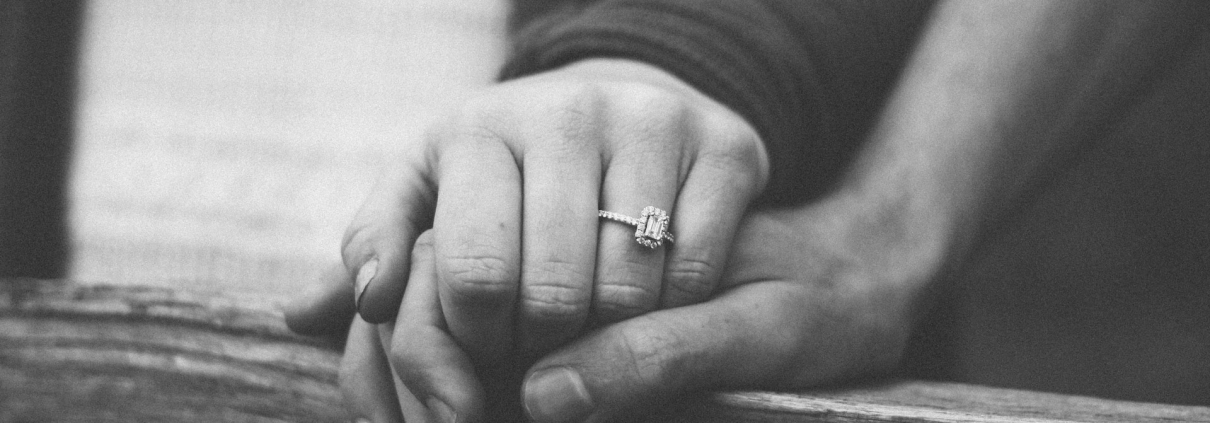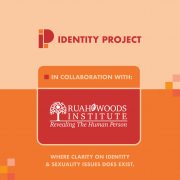Gift, Self-gift, and the Meaning of Life — Part 3: The Spousal Meaning of the Body
We saw in previous reflections that all of creation is a gift held in being at every moment by God, whose inner life is an eternal giving and receiving of Love. Since the very meaning of our existence is gift, and we are made in the image of God who is Love, the fulfillment of our being and existence is to give ourselves away in love (i.e., self-gift). When we make a “total” gift of self, we give our whole selves — body, soul, past, present, and future — to another. This most complete form of self-gift is properly called “spousal,” and the proper “place” for this spousal gift is marriage. The human body, which reveals our maleness or femaleness, shows us that man and woman are made for this kind of spousal gift of self. The body bears witness to the fact that man and woman are made to belong to each other in an exclusive, permanent way through which may flow the blessing of children.
Reflecting in this way on the human body and the logic of gift led Pope St. John Paul II to coin the phrase the “spousal meaning of the body.” This concept was crucial in his thinking about the human person, so much so that he used the term a total of 117 times in Theology of the Body, prompting the editor of the English edition to refer to it as “the single most central and important concept in TOB” (M. Waldstein, TOB, p. 682). Let’s unpack this concept further.
Referencing one of his favorite passages from the Second Vatican Council, Pope St. John Paul II wrote, “The body has a ‘spousal’ meaning because the human person… is a creature that God willed for his own sake and that, at the same time, cannot fully find himself except through the gift of self” (TOB 15:5). How do we “find” ourselves by making a gift of self?
According to the late pope, we discover who we are in how we are received by another, especially in those moments when we are truly “naked,” not necessarily physically but truly vulnerable with another, revealing our inmost self. In those moments of deep encounter, we “find” ourselves — for better or worse — in the other’s reception of us. If we are fully “welcomed” and “accepted” by the other as a gift, we discover the truth of our “giftness.” We learn, “I am a gift, a person to be loved, respected, treasured.”
In applying these insights to the encounter between our first parents described in Genesis 2, Pope St. John Paul II wrote of how the man and woman beheld in one another “a beauty that goes beyond the simply physical level of ‘sexuality.’” They looked on each other with a “deep availability for the ‘affirmation of the person.’” The man and woman saw more than just their sexual features but “through the body someone willed by the Creator ‘for his own sake,’ that is, someone unique and unrepeatable, someone chosen by eternal Love” (TOB 15:4). Though they were naked, they felt no shame because they perceived that they were completely safe in the person-affirming gaze of the other. They discovered that each of their bodies revealed a mystery we call “person,” and through their reciprocal self-giving and welcoming of one another, they discovered their true value as gifts to be treasured. In this way, our first parents discovered the spousal meaning of the body and its essential connection to man’s “original happiness” (TOB 15:5).
Indeed, we are all called to see in each other’s bodies a person who must be welcomed, accepted, even treasured, as a supreme gift from the Creator. By receiving one another in this way, we help each other “find” ourselves, discovering the truth of our “giftness.” We are then emboldened to reveal and welcome each other more and more deeply such that our “mutual gift creates the communion of persons” (TOB 17:3). Thus, the spousal meaning of the body means that through this giving and welcoming, accepting and finding, our bodies proclaim to us the eternal truth that “happiness is being rooted in Love” (TOB 16:2).
Note: This article is part of a series of reflections on Pope St. John Paul II’s “Theology of the Body.”
Continue Reading: Knowledge, Procreation, & the Primordial Sacrament

Written by, Dr. Andrew Sodergren, M.T.S., Psy.D.,
Director of Ruah Woods Psychological Services
(Article originally published in The Catholic Telegraph, July 2022 Issue, the official magazine of the Archdiocese of Cincinnati)











